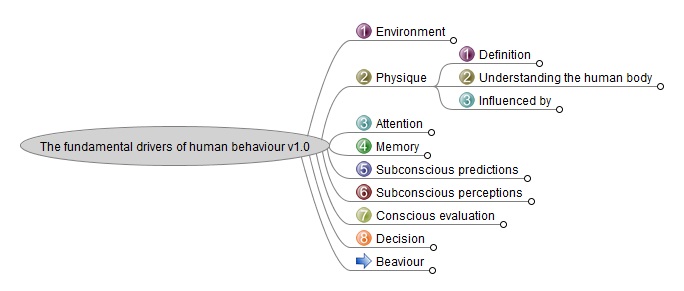
In this post I share the “Learning Through Excitement” method and reveal the secret step to
reduce learning time from years to months. It’s time to rethink learning.
This post will cover:
- The “Learning Through Excitement” method
- The “Learning Process” (includes the “secret” learning step)
To my long-term readers: If you feel this post is somewhat different to my “normal” ones it’s because I’m trying out a new way to write posts that is a lot faster and more exciting to me.
The “Learning Through Excitement” method
In the past I used to learn based on what I “needed” to learn. For example, I studied for tests to get a good score, not because I wanted to learn the topic. I learnt about finance because “everyone doing business must understand it”, not because I felt excited about learning it.
I approached learning this way for years even though it didn’t make me feel good and I wasn’t learning very fast. Without going into a lot of detail, all of that changed a few years ago. What I believe now is this:
The most important factor in learning is feeling excited about what you are learning.
Current research back this view and as I applied this approach to learning I became not only a lover of learning, but a bit of a learning machine. Nice!
But, excitement is dangerous. What currently excites you, the things you feel you want, are unfortunately not only shaped by you. They are strongly influenced, not just by your conscious mind, but by your genetics and the social environment you’ve been exposed to since you were born. For this reason, a lot of what currently excites you isn’t what you truly desire. And that is potentially very dangerous for you.
So, for “Learning Through Excitement” to be most effective, you need to understand what’s truly important to you in your life. This means learning how to become aware of your current desires and ask “why do I want this?”. Is this really what’s important to me or is it just my genetics and the social environment talking?” This process of self-discovery takes time, but that’s okay. You know what they say: Enjoy the journey as hurry means worry ;)
I recommend reading The Four Most Important Things In Life and What’s Your Dream to start your journey of self-discovery. Through this process you’ll start taking control of what excites you instead of leaving your desires to genetics and the social environment.
The learning process and the “secret” learning step
Once I’m excited about learning something and I’m confident that it’s my own desire, I pick a topic, for example “What are the factors that determine human behaviour” and I get started.
The steps below is how I generally approach learning:
- Read: Read great books and identify key points
- ***Synthesise: What key points are most fundamental and how do they fit together?
- Test: Test your understanding through taking action
- Repeat: Repeat the above steps to continually improve your understanding of the topic
*** The step that if done properly will reduce learning time from years to months
Before looking at each of these steps remember that the method we’re using here is “Learning by desire”. So, if you at any point during the process are not excited about what you’re learning, pause, read a different book or pick a different learning topic.
Read great books and identify key points
For me, the best way to learn about a topic is to read. My basic assumption about this is: People who’ve spent their lives researching a topic and have taken the time to published a condensed version of all the knowledge they’ve gained over those years know something worth learning.
So, when I first started studying “Strategy” for example, spoke to people I know who had already studied strategy, I went on Amazon and searched for strategy, and did some Google and Twitter searching as well, to find great strategy books. Don’t just buy the “typical” business strategy books though. Be smarter than that. What can biology teach us about strategy? What about the military? What about the way states behave? A common mistake we make that Charlie Munger has written lots about is our tendency to learn only from one discipline, from one field of knowledge that is. The world is a complex system and if we want to understand something we need to approach it from different angles.

Picture of Charlie Munger borrowed from here.
Next, I bought a few books from different fields (it’s really cheap to buy books on Amazon and they appear on your Kindle only seconds later) and started reading the one I was most excited about.
When reading, remember what Albert Einstein said: “Reading is lazy thinking”. Reading, without deep thinking on your own part, won’t lead to learning. Said differently:
Deep learning comes from your thinking, not your reading
Therefore, when I read I don’t think about anything else. All of my attention is focused on the sentences in the book. I even hold a pen under the line I’m currently reading to focus my attention. Whenever I read something I believe may be a key point, I made a “mark” on my Kindle so that I’ll easily find it later. Doing this comes in very handy when synthesising what you’ve learnt.
Synthesise: What key points are most fundamental and how do they fit together?
***This is the key step for deep and fast learning and shockingly there’s nearly no-one doing it! Do this step properly and I honestly believe you can reduce learning time from years to months.
Next, I will go through the book and extract key points by looking for the marks I’ve made on my Kindle. Typically, I’m excited about doing this a few days/weeks after completing the book so I’ll do it then. I use FreeMind to store the key points as this is an excellent tool for creating your own model of how all of these key points fit together in a way similar to how your mind stores information in memory.
While extracting the key points I continually ask myself: “What are the most fundamental key points that drive the others?” For example:
In strategy, the most fundamental point is to identify a crystal clear reason for the business’ existence. Why? Because this reason drives all other business decisions.
Similarly, here’s an example from the topic of human behaviour:
In human behaviour, what you focus your attention on to a large degree determines how you behave. Why? Because attention controls what perceptions appear in consciousness and strongly affects what’s stored in memory.
The point here isn’t strategy or human behaviour, but that you need to think through what the fundamental parts of what you’re reading are. Don’t be afraid to add your own ideas about what you believe to be true (hypotheses). And don’t worry about getting it perfect, just do your best with the time and excitement you have available and create a version 1.0 of your “model” (for what I refer to when I say “model” check out the example below).
 Here’s a simplified example of what a version 1.0 of a behaviour “model” in FreeMind can look like. If you look carefully you can see a spelling mistake somewhere which is fine, this is just v1.0! Every node has subnodes as exemplified by “Physique”.
Here’s a simplified example of what a version 1.0 of a behaviour “model” in FreeMind can look like. If you look carefully you can see a spelling mistake somewhere which is fine, this is just v1.0! Every node has subnodes as exemplified by “Physique”.
Finally, you want to do some thinking around how these fundamental points fit together. For example, does attention drive what’s stored in memory or does what’s stored in memory drive your attention? Or do both influence one another?
What you’ll realise when doing this work is that you have to look up words such as “strategy”, “purpose”, “attention” and “memory” and be sure that you understand their definitions. To your surprise you’ll learn that even the “experts” out there have different opinions about what these words mean and you may eventually start viewing “truth”, “experts” and “knowledge” differently:
At the end of the day, there exist few “truths” but many opinions. Who’s to say that your opinion can’t be just as good or better than anyone else’s?
Synthesising key points is hard work and it takes time but it is very fulfilling. If you lose your excitement sometimes that’s fine, so do I. Just take a break for a few days/weeks and then get back to it when your excitement has returned. When you’ve completed this step you’ll only realise exactly how much you’ve learnt when you start speaking to others about the topic. Suddenly, you’ve gone from “zero” to “a bit of a hero”!
Test: Test your understanding through taking action
At the end of the day, your model, your synthesis of the key points from the book(s) and the personal ideas you’ve added, is “just a model”. It’s not reality, it’s theory.
To identify how your understanding can be improved you need to test your model in the real world. For example, if you’ve created a model of the fundamental factors/points that lead to fat-loss, you should test your model by applying it to yourself. This will means testing your model on one person and it will reveal important insights. Then, try helping friends and family lose fat using your model. Does it work? What doesn’t work? Why does it work? Why doesn’t it work?
Getting such feedback from the real world is essential:
A great model isn’t great if it doesn’t work in reality.
Finally, repeat the above process to more deeply understand the topic you’re learning about.
Repeat: Repeat the above steps to continually improve your understanding of the topic
There is no need to explain this step in detail, just repeat the above steps. For every iteration you’ll increase your understanding and you’ll never be completely “finished”. What I suggest is that you continue as long as the area excites you. When your excitement has gone elsewhere, follow that passion. Who knows, perhaps the new topic you’re excited about is in some way related to the thing you just learnt about?
What’s your approach to learning?
I’d love your input on how you learn most effectively and how you think the way I learn can be improved.
Regards from the Philippines :-)
Bjarte (I borrowed the “excitement picture from here).

thanks !
No problem, hope it helps Giang :-)
Thank you for wisdom.
I think “Read” is one of the behavior method of human about “observation”.
“Synthesise” is the behavior find out some “structure of information” and “relation with each informations”, Finally realize some kind of “patterns” in relation information.
“Test” is very important factor because people forget its importance easily.
I think it is final “verification” activity whether “relation information” is correct or not.
“Repeat” is continuos action making “information structure” continuosly.
Jay, thanks for your compliment. However, having read your summary it seems it’s you who is the wise one. I especially appreciated the first thing you said about “observation”. A few months ago I was thinking about what the different types of human acitvities are. Just as you wrote above, I concluded that “observation” is one of those types and “reading” being one way of observing. If I may ask, what is your interest in thinking about these topics?
Thanks.
I will respense your question after thinking.
I’m looking forward to hearing your thoughts Jay.
Dear Mr. Bjarte.
Thanks for your response.
First of all, I would like to talk about “Excitement” for learning what you said.
And next time, I will response the other things.
I totally understand and agree with your opinion about “Excitement” for learning.
Particurly, the “Excitement” is deffrent from each persons beacause people have different genetic and environmental factors.
But I think the important thing is making excitement always even if people is not excited to learning.
So the key point is “How do we always make excitement by ourselves.”
This is very important thing because people is not always happy and excited.
You said about this “process of self-discovery” and find out “What you want”.
I totally agree with that,
but there is no method in your sentences.
I think the specific method making excitement by ourselves is as below.
1. The purpose : self-discovery (what you said)
1) Always feel comfortable and relax
(By using method by oneself : ex) meditation, self-examination)
2) Being the owner of my heart (by No. 1))
3) Observation
4) Making structure of information (You said about this : synthesis)
5) Finding some “patterns” in structure of information
6) About what realized about “patterns”,
Practice and update (You said about this : Test)
7) Reapet and update / Reapet and update
Jay, I greatly appreciate your thinking and you sharing your thoughts here. I have to think more about the specific model and then method for how to making excitement ourselves.When I do I’ll include your seven steps in my thinking.
One thing I do believe is of significance is what environment you spend your time in. If you hang around people like Elon Musk you will likely be inspired to learn loads of things. Therefore, hanging around people who love learning and reading about great people can be one way of generating excitement.
Repeating of the process from 1) to 7) continuosly means always update our keen “insight” and find “self-examination” eventually I think.
Thank you for your comment Mr. Bjarte.